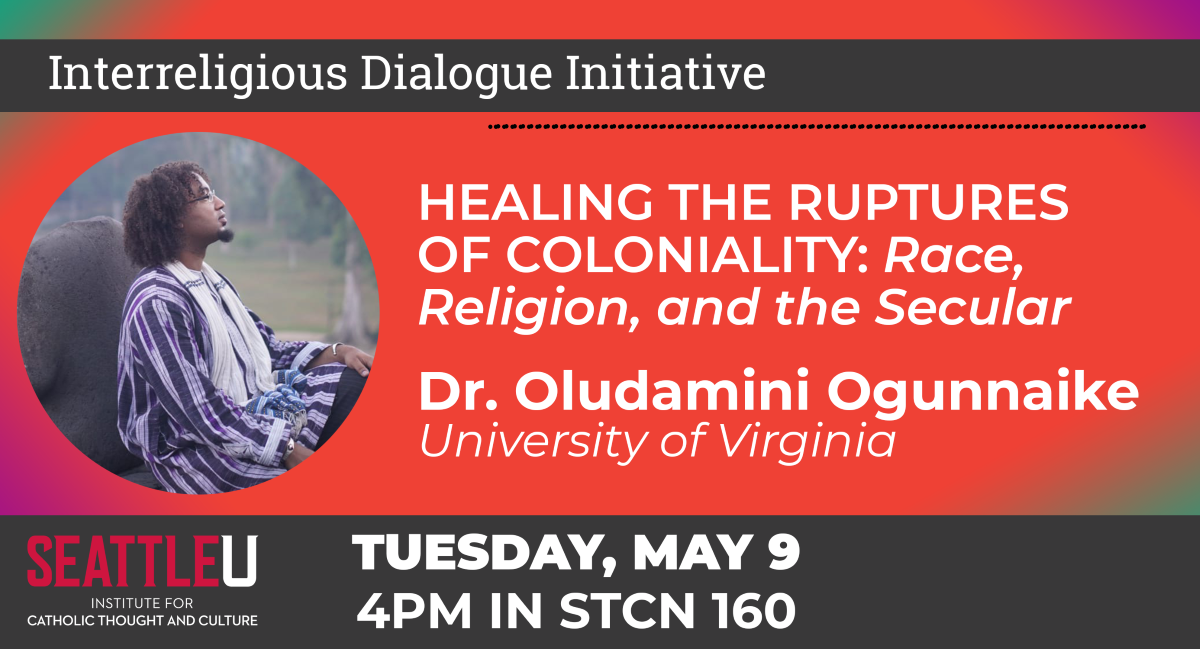
Healing the Ruptures of Coloniality: Race, Religion, and the Secular
Dr. Oludamini Ogunnaike, University of Virginia
TuesdayMay 9, 2023
Le Roux Room, STCN 160
While colonialism is widely believed to have officially ended in the 20th century, ushering in a "postcolonial" era, and W.E.B. DuBois famously defined the "problem of the 20th century [to be] the problem of the color line," this presentation will examine the ways in which this colonial color line has transformed and continues to thrive in the 21st century. Critically building on the work of Frantz Fanon and Sylvia Wynter, and in particular reference to the mutually-influencing categories of race and religion, this talk will explore the roots of this continuing colonial rupture, and strategies for moving beyond it in various domains.
Oludamini Ogunnaike is an Associate Professor of African Religious Thought at the University of Virginia specializing in the intellectual and aesthetic dimensions of West and North African Sufism and Yoruba oriṣa traditions. He is the author of Deep Knowledge: Ways of Knowing in Sufism and Ifa, Two West African Intellectual Traditions (Penn State University Press, 2020) winner of the ASWAD's (Association for the Study of the Worldwide African Diaspora) Outstanding First Book Prize and Poetry in Praise of Prophetic Perfection: West African Madīḥ Poetry and its Precedents (Islamic Texts Society, 2020). He is currently working on two book projects, The Logic of the Birds: An Introduction to Sufi Poetry and Poetics and a book on Yoruba Mythology.
He received his PhD in African and African American studies and Religion at Harvard University and his A.B. in African Studies and Cognitive Neuroscience from Harvard College.
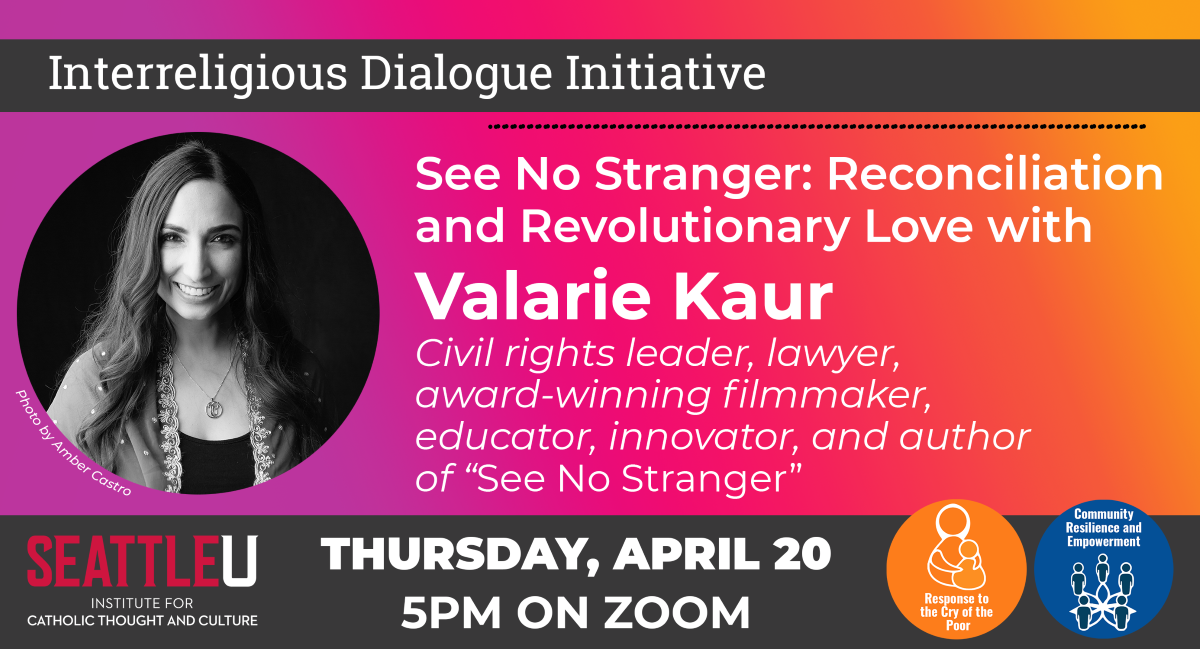
See No Stranger: Reconciliation and Revolutionary Love
Valarie Kaur, founder of the Revolutionary Love Project
Thursday, April 20, 2023
Zoom
VALARIE KAUR is a civil rights leader, lawyer, award-winning filmmaker, educator, and founder of the Revolutionary Love Project. Valarie became an activist when a Sikh father and family friend was the first person murdered in hate violence in the aftermath of 9/11. For two decades, in his memory, Valarie has led visionary campaigns to tell untold stories and change policy on issues ranging from hate crimes to digital freedom. Her work ignited a national movement to reclaim love as a force for justice.
Today, the Revolutionary Love Project is seeding networked communities of practice across the country to build the beloved community. A daughter of Punjabi Sikh farmers in California, Valarie lifts up her vision for America in her acclaimed TED Talk and #1 LA Times Bestseller See No Stranger: A Memoir and Manifesto of Revolutionary Love. In Fall 2022, President Biden honored Valarie at the White House in the first-ever Uniters Ceremony, naming her as one of 16 leaders whose work is healing America.
To experience Valarie’s vision for America, watch her TED Talk and read her acclaimed book SEE NO STRANGER: A Memoir & Manifesto of Revolutionary Love.
Email ICTC@seattleu.edu to request the video password.
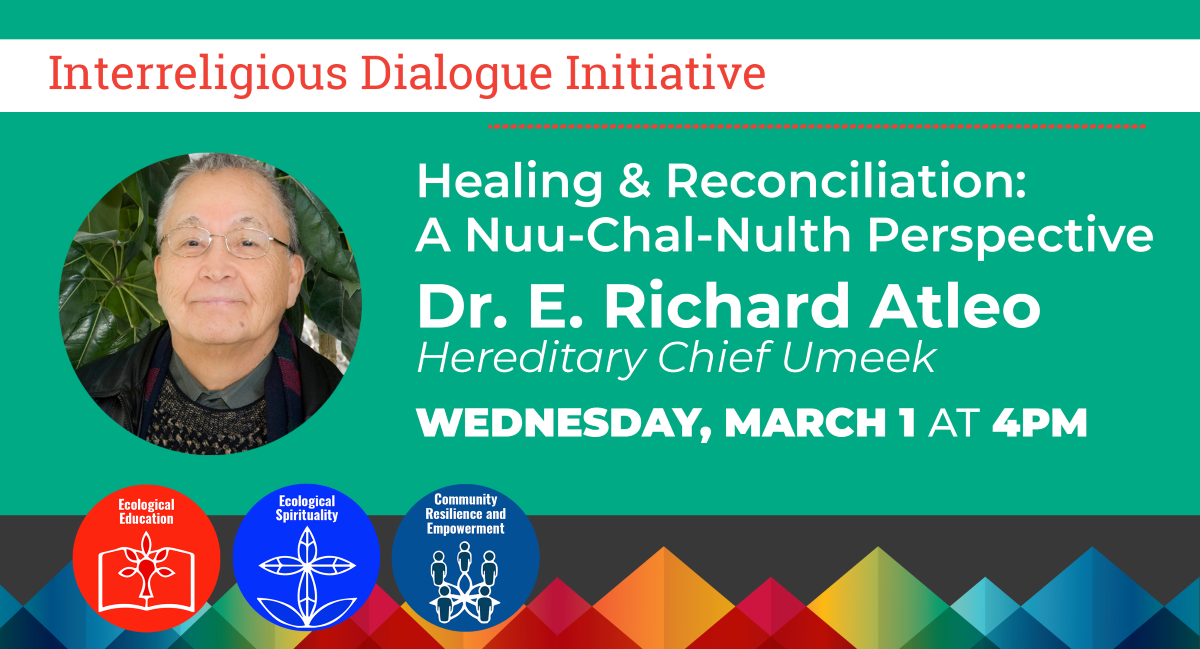
Healing and Reconciliation: A Nuu-Chal-Nulth Perspective
Discussion with Dr. E. Richard Atleo, hereditary Chief Umeek
Wednesday, March 1, 2023
Oberto Commons, SINE 200
Dr. E. Richard Atleo, whose Nuu-chah-nulth name is Umeek, is a hereditary chief. He is widely and duly celebrated both for his analysis and promotion of the Nuu-chal-nulth concept of "tsawalk," oneness, the interdependence of all things, and for fostering our respectful relationship and negotiation with it. He has written two contemporary classics on this theme, Tsawalk: A Nuu-Chal-Nuth Worldview (2005), and Principles of Tsawalk: An Indigenous Approach to Global Crisis (2012). He will draw on his vast experience and his life in two cultural worlds to speak to healing and reconciliation.
Dr. Atleo's contributions include the creation of the First Nations Studies Department at Vancouver Island University where he also taught as well as the Universities of Victoria, Manitoba, Simon Fraser, and UBC. Beyond his roles in academia, Dr. Atleo was a social worker, elementary school teacher, principal, federal ministerial assistant, and assistant superintendent of education. Dr. Atleo received the Equity Award from the Canadian Association of University Teachers, where he served as a member of the Equity Committee since its inception. His contributions extend to other organizations, including roles as co-chair of the Scientific Panel for Sustainable Forest Practices in Clayoquot Sound, and as a member of the board of Ecotrust Canada.
Read the Salmon Parks story in the Seattle Times
Email ICTC@seattleu.edu to request the video password.
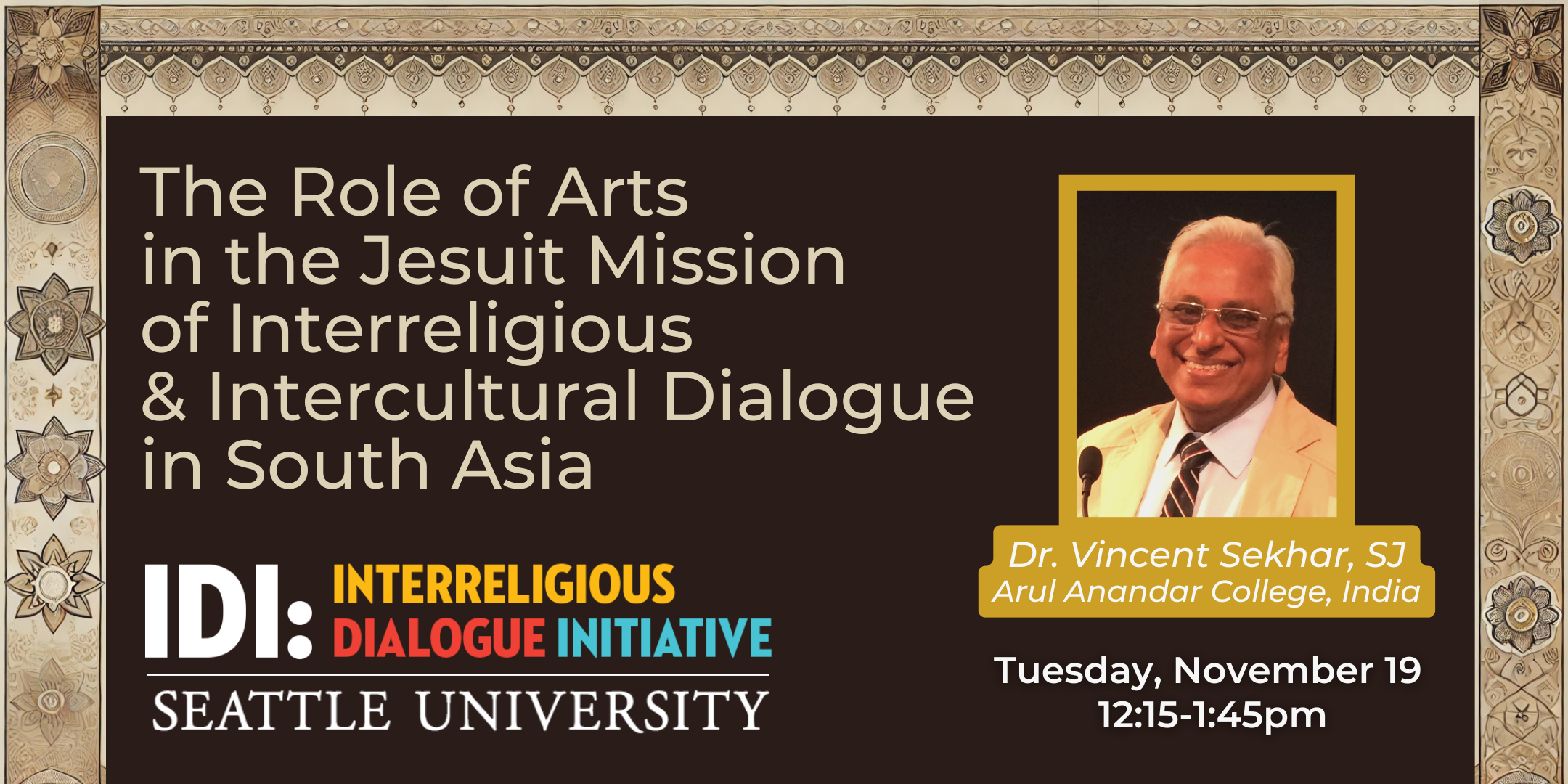 The Role of Arts in the Jesuit Mission of Interreligious & Intercultural Dialogue in South Asia
The Role of Arts in the Jesuit Mission of Interreligious & Intercultural Dialogue in South Asia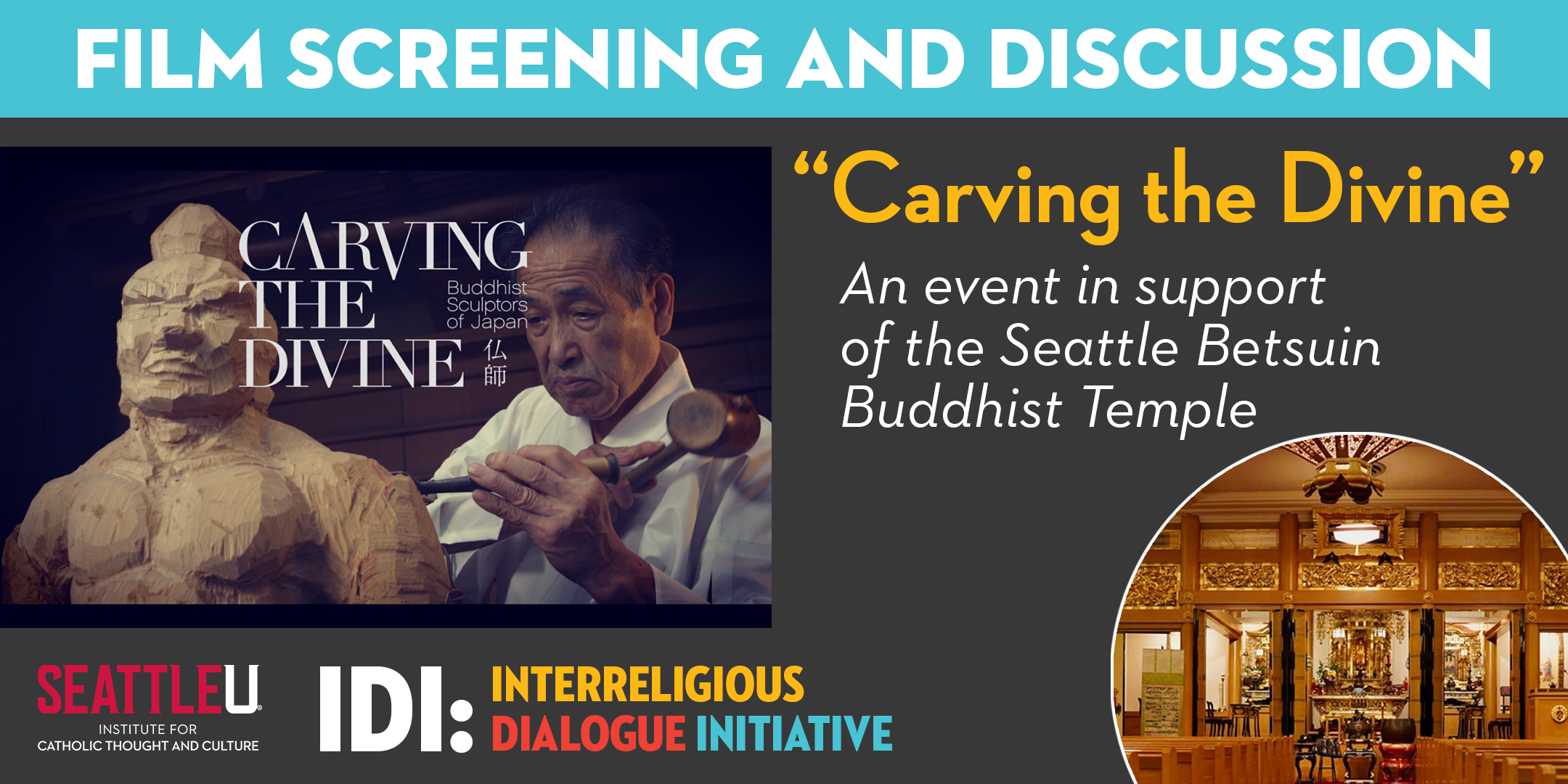 Film Screening and Discussion: Carving the Divine
Film Screening and Discussion: Carving the Divine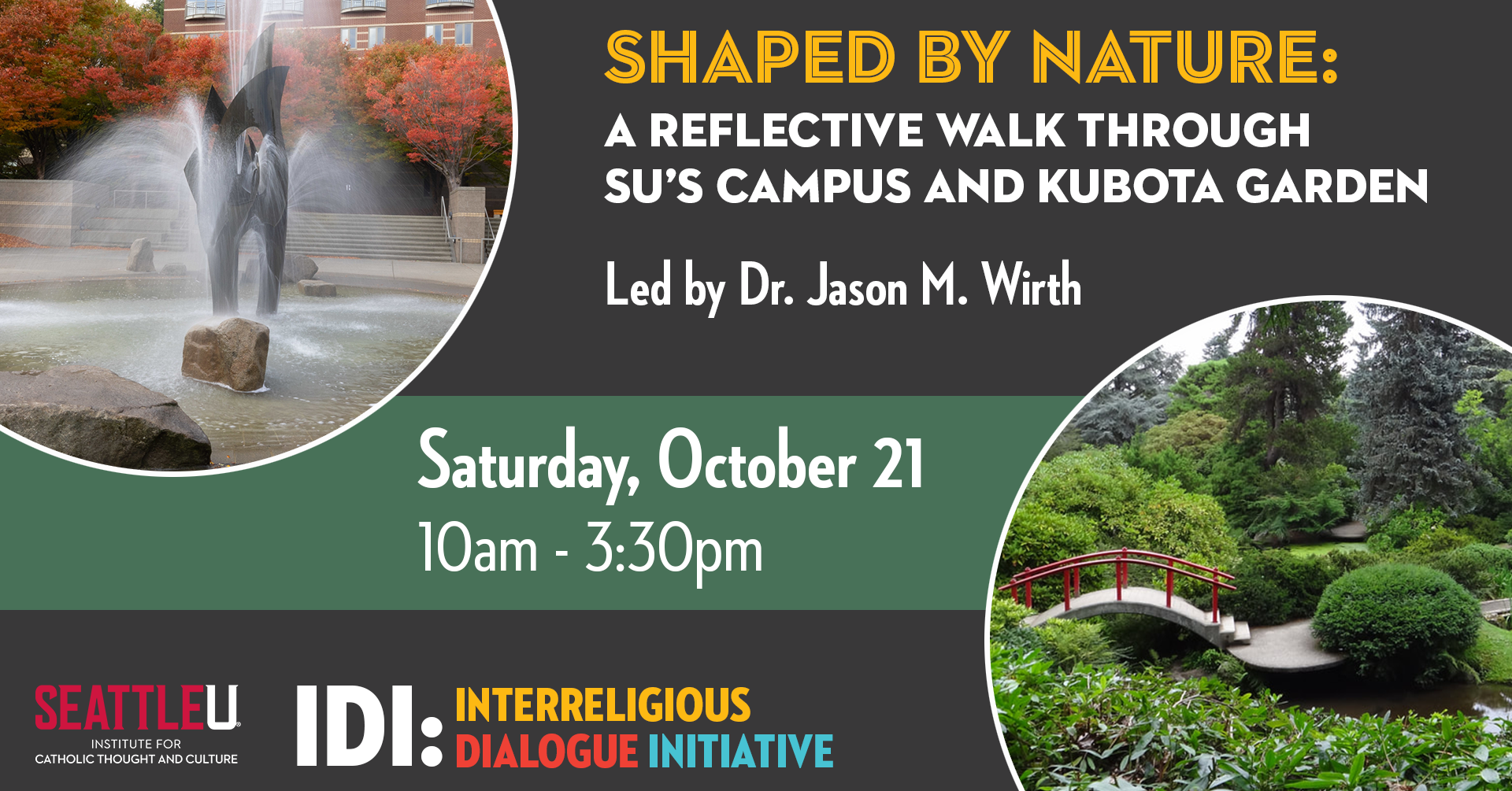 Shaped by Nature: A Reflective Walk through SU’s Campus and Kubota Garden
Shaped by Nature: A Reflective Walk through SU’s Campus and Kubota Garden

